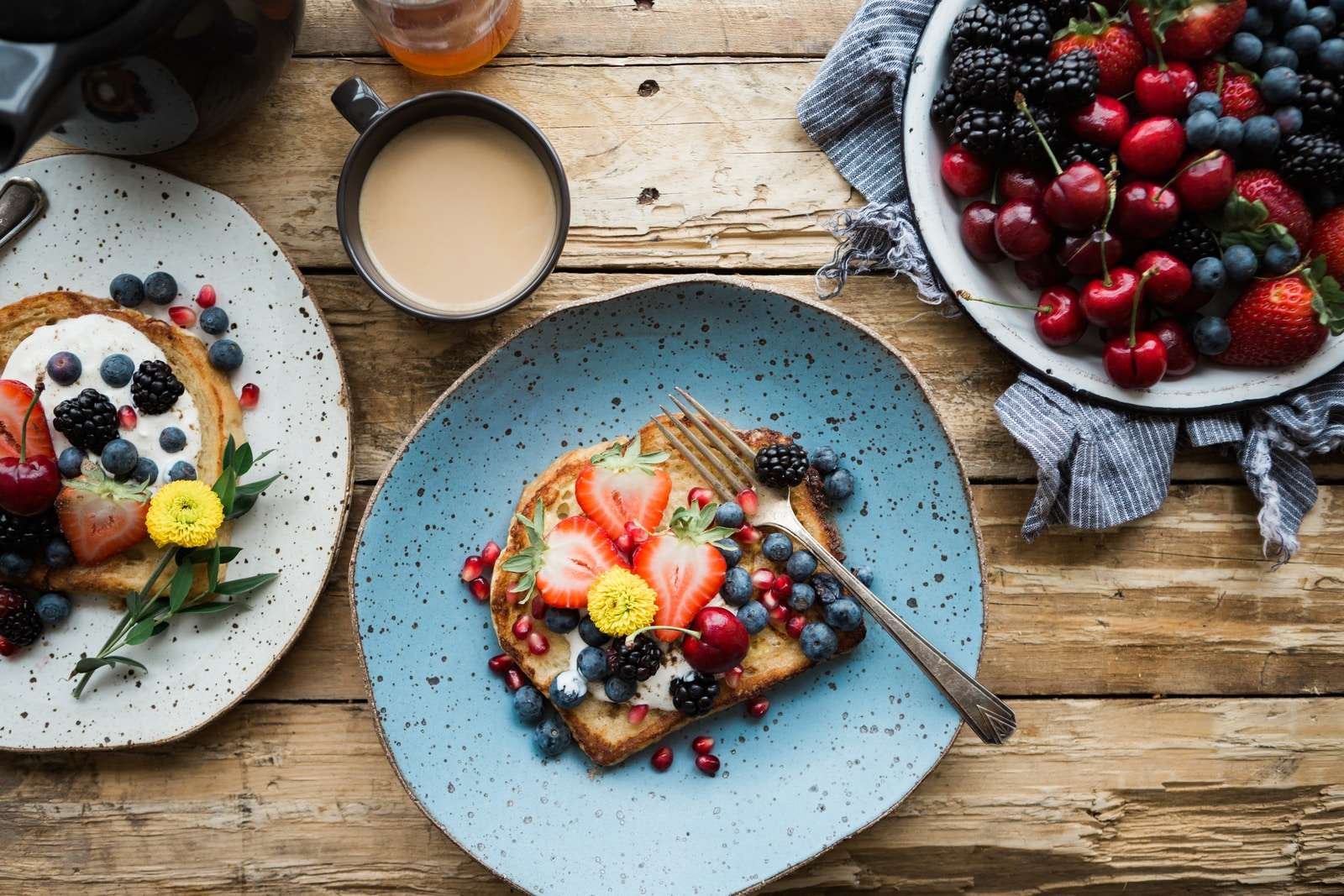This article originally appeared in the Aotearoa Vegan Magazine Summer Issue 2023
- The food we eat can impact our mental health.
- The gut-brain connection through the vagus nerve has been found to have a big impact on our brain.
- Recently, researchers have found that dietary change can greatly improve mental health.
- Dark leafy greens, berries, dark chocolate, a diverse range of whole plant foods, and healthy fats are foods that can support mental health.
- A diet focused on whole foods and less processed foods has been found to have the best impact on mental health.
Did you know your food can affect your mood?
This is a new and developing area of science that I find so fascinating.
It can just be really empowering to know that the food we eat can impact our mental health – to have another tool in our mental health toolbox of things we can do to support ourselves.
I want to quickly mention that mental health is an incredibly complex topic that’s affected by so many different factors – diet isn’t a panacea for perfect mental health, but it can be an incredibly important piece of the puzzle for many of us!
There are many ways that the food we eat can impact our mental health, such as simply ensuring we’re getting adequate nutrition, as well as the effect that what we eat has on our gut health. In our gut we have hundreds of millions of neurons – our ‘gut brain’ and we have our microbiome – trillions of bacteria that produce all sorts of compounds that help to improve our mental health. Our ‘gut brain’ is connected to our brain through a nerve called the vagus nerve and can have a big impact on what is going on in our brain. For example, think about a time when you were nervous before something. These ‘butterflies in the stomach’ are the gut-brain connection at play.
The cool thing is, recently researchers have been looking into this connection between the food we eat, our gut health and our mental health and there’s been some incredibly interesting studies that have come out where researchers have helped people to change their diets and they’ve greatly improved things like depression.
To keep this really simple I just want to give you some foods you can try that may help to support your mental health and also some overall dietary tips based on what was used in these studies, so you can get an idea of how to eat to support your mental health.
You probably already know these foods are good for you. But here’s even more reason to try including them in your diet!
Dark Leafy Greens
Firstly dark leafy greens like kale, spinach, Swiss chard, collard greens and broccoli. These dark leafy green vegetables contain a lot of different nutrients that are amazing for our brain health and can help with our mental health. One study showed that people who regularly ate dark leafy greens had significantly slower cognitive decline when ageing. Their brains looked like they were 11 years younger compared to people who didn’t eat dark leafy greens! A great place to start with is adding greens to a salad, or a smoothie – or try baking some delicious kale chips!
Berries
Another food that is great for our brain health, and can potentially support our mental health are berries. All different types of berries are really good for us. The compounds that give berries their unique colours are also really great for our health. They help to reduce inflammation and promote good brain function and mood. They’re great to add to smoothies, on top of your breakfast or just enjoyed by themselves as a snack.
Dark Chocolate
Here’s a fun one! Dark Chocolate. There’s a study that came out earlier this year where researchers compared people who ate no chocolate to people who ate 70% dark chocolate to people who ate 85% dark chocolate. They found the people who were eating the 85% dark chocolate had significantly improved mood. The researchers think this was due to compounds called polyphenols in the chocolate that help feed the good bacteria in our gut which can then support our mental health through our gut-brain connection. The key here is to go for the darkest chocolate possible as it is higher in these polyphenols!
Eat The Rainbow
Another thing to think about is eating the rainbow – just eating a lot of different coloured fruits and vegetables. All these different coloured fruits and vegetables have tons of beneficial nutrients and compounds, not just for our mental health but for our physical health as well. They can help to reduce inflammation in our bodies and help us to just generally feel better as we’re getting a broad intake of essential nutrients that we need to stay healthy in our bodies and minds.
Diversity of Plants for Gut Health
Relating to the above point – just eating a diverse range of whole plant foods. This is a key for our gut health, and for optimum mental health. Try to eat a diverse range of whole plant foods like fruits, vegetables, nuts, seeds, legumes (like chickpeas, beans, lentils) and whole grains. They contain fibre that feeds the beneficial bacteria in our gut so they can produce compounds that are really beneficial for our mental health.
Focus on Essential Healthy Fats
The final tip is just making sure you are getting some good essential fats in your diet. This is important for supporting our mental health. Including things like nuts and seeds in your diet is a good option especially ones like flax seeds, walnuts, chia seeds and hemp seeds that are high in essential omega 3s as well as things like avocados and olives or even olive oil that contain other essential fats. You could also look at taking a vegan algae oil supplement that contains the long chain omega 3 molecules EPA and DHA that are needed for our brain health.
When we’re looking at a healthy diet to support mental health we know from the research, people who are eating more whole foods including things like fruits, vegetables, nuts, seeds, legumes, whole grains and less processed foods have the best mental health. If you’re making a shift in this direction know that you’re making a positive step in supporting your mental health.
Let’s keep it simple and just know that diet is another tool you can have to support your mental health alongside all of the other things that are really important too, like sleep, exercise and working with a professional if you need help.
If you’re looking for further support with your nutrition and mental health, I am a qualified nutritionist with a background in Psychology. Contact me today to book your free discovery call and talk about options for better wellbeing along with individualised plans tailored just for you!





0 Comments